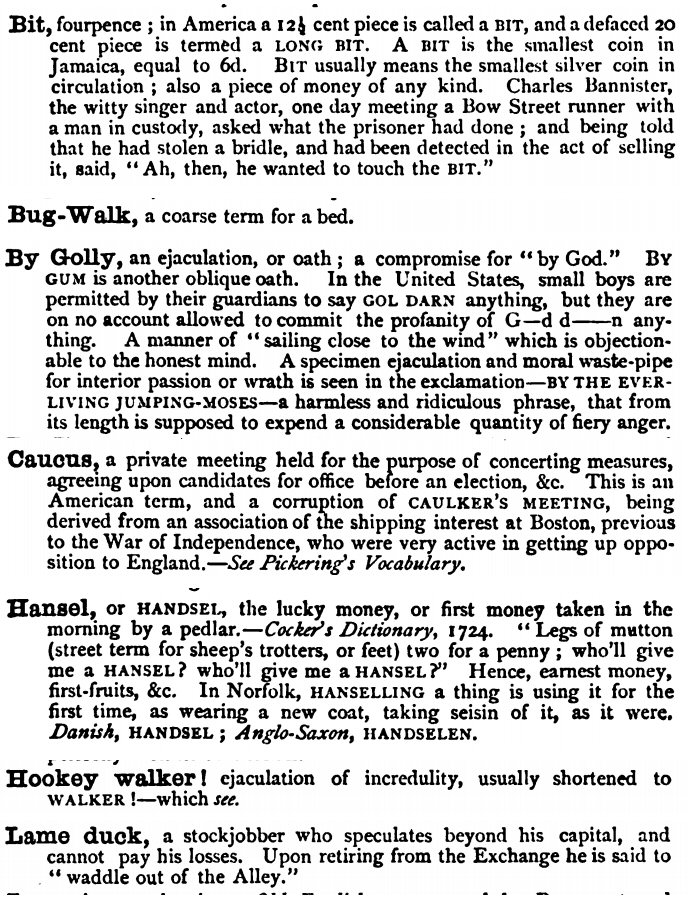Friday, May 19, 2017
Things you still don't know
ZH features some "things you don't know" about the history of money.
One of those things is the idea that 'buck' came from fur traders, who used the skin of a buck for the value of a dollar. Granting that old slang can be hard to trace, this one simply doesn't make sense. First, fur traders were not a fertile source of slang. They didn't connect much with broader society. Second, 'buck' is the same word as 'puck', representing a hard token or coin. Plenty of slang terms, including 'passing the buck', arise from this basic meaning. No reason to stretch all the way to furs when buck already meant a coin.
Here's a specific reference from an 1874 British dictionary of slang:
 Sixpence was the most common coin, thus it owned the widest variety of slang terms, including buck. A dollar at that time was about 1/5 of a pound = 4 shillings or 48 pence, but slang doesn't follow exact exchange rates. The more appropriate ratio is Common coin / Common coin.
However, from the same source...
Sixpence was the most common coin, thus it owned the widest variety of slang terms, including buck. A dollar at that time was about 1/5 of a pound = 4 shillings or 48 pence, but slang doesn't follow exact exchange rates. The more appropriate ratio is Common coin / Common coin.
However, from the same source...
 ... some slang actually agreed with the exchange rate.
= = = = =
And just for fun, a few more items from the same source that caught my attention.
... some slang actually agreed with the exchange rate.
= = = = =
And just for fun, a few more items from the same source that caught my attention.
 Moral waste-pipe! Wonderful.
Moral waste-pipe! Wonderful.
 Sixpence was the most common coin, thus it owned the widest variety of slang terms, including buck. A dollar at that time was about 1/5 of a pound = 4 shillings or 48 pence, but slang doesn't follow exact exchange rates. The more appropriate ratio is Common coin / Common coin.
However, from the same source...
Sixpence was the most common coin, thus it owned the widest variety of slang terms, including buck. A dollar at that time was about 1/5 of a pound = 4 shillings or 48 pence, but slang doesn't follow exact exchange rates. The more appropriate ratio is Common coin / Common coin.
However, from the same source...
 ... some slang actually agreed with the exchange rate.
= = = = =
And just for fun, a few more items from the same source that caught my attention.
... some slang actually agreed with the exchange rate.
= = = = =
And just for fun, a few more items from the same source that caught my attention.
 Moral waste-pipe! Wonderful.
Moral waste-pipe! Wonderful.
Labels: Language update
